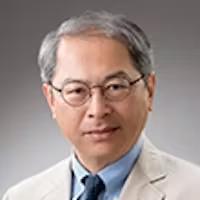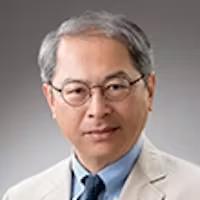Understand essential principles through international viewpoints, examining ecological issues and innovative solutions, blending Japanese and global approaches.
Understand essential principles through international viewpoints, examining ecological issues and innovative solutions, blending Japanese and global approaches.
This comprehensive course explores sustainability science as a crucial approach to addressing complex global challenges. Through an interdisciplinary lens, students examine key sustainability issues including industrial pollution, aging society demographics, human-nature relationships, urban planning, and environmental governance. The curriculum emphasizes Japanese perspectives and solutions while covering international initiatives and theoretical frameworks. Participants learn about socio-ecological production landscapes, ecosystem-based disaster risk reduction, and urban-rural land use strategies for creating resilient communities. The course combines historical lessons with current sustainability challenges, providing practical insights for creating sustainable futures.
11,023 already enrolled
Instructors:
English
English
What you'll learn
Understand fundamental concepts and theories of sustainability science
Analyze historical and current sustainability challenges globally
Explore human-nature connections and ecosystem-based approaches
Evaluate urban-rural planning strategies for sustainable development
Examine environmental governance and educational initiatives
Apply Japanese perspectives to contemporary sustainability issues
Skills you'll gain
This course includes:
PreRecorded video
Graded assignments, exams
Access on Mobile, Tablet, Desktop
Limited Access access
Shareable certificate
Closed caption
Get a Completion Certificate
Share your certificate with prospective employers and your professional network on LinkedIn.
Created by
Provided by

Top companies offer this course to their employees
Top companies provide this course to enhance their employees' skills, ensuring they excel in handling complex projects and drive organizational success.





Module Description
This course provides a holistic exploration of sustainability science, examining theoretical concepts and practical applications through Japanese and global case studies. The curriculum covers crucial sustainability challenges including environmental pollution, demographic changes, urban development, and ecosystem management. Students learn about innovative approaches to sustainability, from socio-ecological production landscapes to ecosystem-based disaster risk reduction. The course emphasizes the integration of human-nature relationships and environmental governance in creating sustainable futures.
Fee Structure
Instructors
Expert in Sustainable Urban Development at The University of Tokyo
Makoto Yokohari is a Professor at the School of Engineering at The University of Tokyo. He earned his Bachelor's degree in 1984, his Master's degree in 1986, and his PhD in 2002, all from the University of Tokyo. His research focuses on sustainable urban development and planning, addressing the challenges faced by urban areas in Japan.

1 Course
Distinguished Scholar in Sustainability Science and Environmental Engineering
Takashi Mino is a Project Professor at Tokyo College, The University of Tokyo, with a distinguished career spanning environmental engineering and sustainability science education. After receiving his Bachelor's, Master's, and PhD degrees in Engineering from The University of Tokyo (1978-1983), he has established himself as a leading expert in sustainability education and environmental technologies. His research encompasses diverse areas including education for sustainable development, sustainable water management, microbiology in wastewater systems, and wastewater treatment modeling. As the coordinator of the Graduate Program in Sustainability Science – Global Leadership Initiative, Mino has been instrumental in shaping sustainability education at the university level. His significant contributions include pioneering work on student diversity in sustainability education and environmental leadership capacity building in higher education. He currently leads courses on sustainability science at Tokyo College, including "Sustainability Science – A Key Concept for Future Design," which explores theoretical concepts and practical applications of sustainability science through Japanese perspectives. His published works, including "Environmental Leadership Capacity Building in Higher Education" and "Sustainability Science: Field Methods and Exercises," have significantly influenced the field of sustainability education and environmental management.
Testimonials
Testimonials and success stories are a testament to the quality of this program and its impact on your career and learning journey. Be the first to help others make an informed decision by sharing your review of the course.
Frequently asked questions
Below are some of the most commonly asked questions about this course. We aim to provide clear and concise answers to help you better understand the course content, structure, and any other relevant information. If you have any additional questions or if your question is not listed here, please don't hesitate to reach out to our support team for further assistance.




